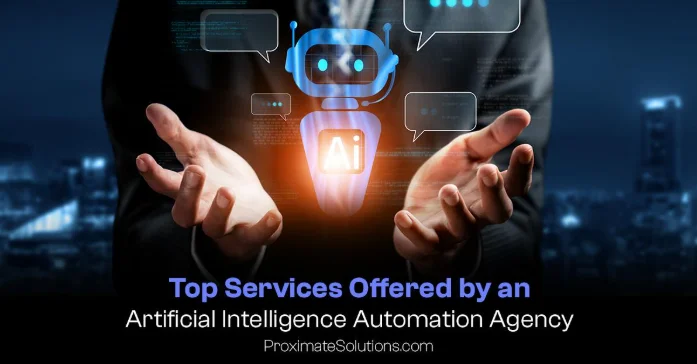Role of AI in Modern Social Media App Development

In today’s digital world, social media apps are everywhere on our phones, computers, and even in our daily conversations.
But have you ever wondered how these platforms seem to know what you like, who you might want to follow, or which videos you’d enjoy? The answer lies in Artificial Intelligence (AI). AI is becoming a major part of how modern social media apps are built and improved. Let’s break it down in simple terms.
What is AI?
AI, or Artificial Intelligence, is a kind of computer technology that tries to think and learn like humans. It can analyze big amounts of data, recognize patterns, and make smart decisions on its own. In the world of social media, AI helps apps learn more about users and give them better content, experiences, and features.
Why is AI Important in Social Media?
AI helps social media apps become smarter. Instead of just showing random posts, AI understands user behavior, what you click on, watch, like, or comment on. Based on that, the app shows you more of what you’re likely to enjoy. This keeps people engaged and helps the platform grow.
How AI Is Used in Social Media App Development?
Artificial Intelligence (AI) has become a core part of how social media platforms are designed, operated, and improved. From recommending content to keeping users safe, AI plays many roles that make apps smarter, faster, and more engaging. Below are the key ways AI is transforming the development and functionality of social media apps.
1. Personalized Content Recommendations
One of the most powerful uses of AI in social media is personalized content recommendation. When you open apps like Instagram, TikTok, Facebook, or YouTube, the first posts, videos, or stories you see aren’t random; they’re carefully selected using AI algorithms.
These algorithms analyze your behavior: what you like, comment on, share, save, and watch. They also look at how long you view something, who you interact with, and what you ignore. Based on this data, AI learns your preferences and tailors your feed to show more of what you enjoy.
Real-Life Examples:
- YouTube suggests videos based on your watch history, liked content, and search queries.
- TikTok’s “For You” page is entirely driven by AI, showing videos you’re most likely to engage with.
- Instagram uses AI to recommend Reels, explore posts, and even ads that match your interests.
This helps users stay engaged, and makes social media apps more addictive and personalized.
2. Chatbots and Customer Support
Social media apps and business pages now commonly use AI-powered chatbots to handle customer queries and support requests. These bots can understand basic human language, respond instantly, and provide 24/7 assistance without involving a real person.
This not only improves the customer experience but also helps brands and developers reduce support costs and response times. A professional social media app development company often integrates smart chatbot systems into platforms to ensure users receive quick, reliable, and automated help.
Where It’s Used:
- Facebook Messenger Bots: Brands use them to answer FAQs, book appointments, and provide tracking info.
- Instagram DMs: Businesses can automate replies with keyword triggers and quick responses.
- Website Chatbots: Many companies integrate their social accounts with AI chat widgets for smoother service.
As AI improves, these bots are becoming more human-like in their understanding and tone.
3. Content Moderation
Millions of posts are uploaded daily on platforms like Facebook, Instagram, Twitter, and TikTok. It would be impossible for humans to review them all manually. That’s where AI-driven content moderation comes in.
AI systems scan images, videos, captions, and comments for inappropriate or harmful content. They can detect:
- Hate speech or abusive language
- Graphic violence or nudity
- Spam, scams, or misleading content
- Fake news and misinformation
While human moderators still handle complex or borderline cases, AI does the bulk of the initial review work. This helps platforms maintain community guidelines and prevent harmful content from spreading.
4. Facial Recognition and Tag Suggestions
AI’s ability to recognize patterns and faces allows it to detect and match people in photos. When you upload a picture to Facebook, it often suggests tagging your friends automatically, that’s AI in action.
Beyond tagging, facial recognition also powers features like:
- Snapchat lenses and Instagram filters, which track facial movements in real time.
- Photo sorting, where AI organizes images based on who’s in them.
- Security tools, such as verifying user identities for account protection.
Though powerful, this tech comes with privacy concerns, and many platforms now give users the option to turn it off.
5. Voice and Language Processing
Natural Language Processing (NLP), a branch of AI, allows social media platforms to understand what users are saying or writing. This is especially useful for accessibility, translation, and tone analysis.
Key features powered by AI in this area include:
- Auto-captions for videos help people with hearing impairments follow along.
- Live translations allow users to read or hear content from other languages in real time.
- Sentiment analysis, where AI gauges the mood of a post (happy, sad, angry) to prioritize or flag it.
For voice-based content, AI can transcribe podcasts, recognize commands, or even provide voice-activated search options.
6. Trend Analysis and Insights
AI is a powerful tool for identifying trends and viral content. Developers and marketers use AI to analyze massive amounts of data from likes, shares, retweets, hashtags, and mentions.
By recognizing which types of content are gaining traction, AI can help:
- Predict viral trends before they peak
- Recommend hashtags for better reach
- Inform influencers and brands about hot topics
- Guide app developers on which features or formats to build next
AI turns raw data into actionable insights, giving users, brands, and developers an edge in the fast-moving world of social media.
The Future of AI in Social Media
AI will keep getting better. In the future, we’ll likely see:
- Smarter content creation tools, where AI helps edit videos or suggest hashtags.
- More accurate moderation, with AI understanding context better.
- Deeper personalization, with AI predicting what users want even before they search for it.
As technology grows, AI and social media will continue to work hand-in-hand, creating new possibilities for both developers and users. Whether you’re a startup or a brand looking to innovate, partnering with an experienced AI Development Company in Dubai can help you stay ahead in the ever-evolving digital space.
Final Thoughts
AI is not just a buzzword; it’s changing how we build and use social media every day.
From recommending content to protecting users, AI plays a huge role in making apps smarter and more user-friendly. For developers, understanding AI means building better apps. For users, it means enjoying a more personalized and safer online experience.
Whether you’re a developer, business owner, or everyday user, one thing is clear: AI is shaping the future of social media, and it’s only getting started.
Recent Posts
Recent Comments

Top Services Offered by an Artificial Intelligence Automation Agency

How Can AI-Powered Inbound Call Centers Improve Customer Satisfaction?

How AI and Automation Are Changing Commercial Animation Studios

The Future of Front Desk Management: Why AI Receptionists Are Leading the Way

Why Electricians Recommend Upgrading Old Switches and Lights Today

Variance in Finance: How CFOs Can Leverage Analytics Tools for Informed Decision‑Making

Mastering Event Planning: Finding the Perfect Function Space
